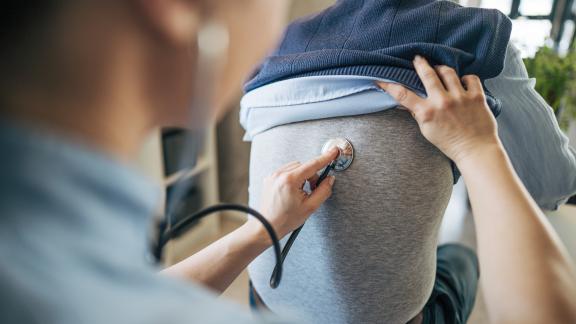Fall in waiting lists welcome but concerns remain over growing maintenance backlog

- The estimated number of patients waiting for elective care fell from 6.5 million in September to 6.44 million in October;
- The total waiting list for procedures and appointments fell from 7.77 million to 7.71 million during the same period;
- The maintenance backlog has risen from £10.2bn in 2021/22 to £11.6bn in 2022/23, with the highest risk maintenance increasing 31% from £1.8bn to £2.4bn.
- Ambulance category one call out times fell to 8 minutes 32 seconds in November, compared to 8 minutes 40 seconds in October;
- There were an average of 402 patients in hospital with flu each day last week, up 65% from 243 the previous week;
- Some 506 adults were in hospital with norovirus every day last week on average, up by nearly 25% from 406 the previous week; and
- Staff absences rose to an average of 49,020 on each day last week, up from 47,018 the previous week.
Responding to the latest NHS performance and winter sitrep figures Rory Deighton, director of the NHS Confederation’s Acute Network, said:
“The drop in the number of people waiting for NHS treatment is welcome news and shows the incredible efforts staff and leaders have made to give patients the care they need. The fact that this comes amid ongoing strikes and system pressures is testament to dedication of staff across the country.
“But NHS staff will need the ongoing support of politicians and leaders in order to continue to tackle this backlog. The upcoming junior doctors strikes could jeopardise all this hard work, leading to more cancelled appointments and operations, while the maintenance backlog rising to £11.6 billion shows the urgent need for more capital so the health service can fix crumbling buildings and invest in vital equipment.
“The growing cost of the high-risk maintenance needed to prevent catastrophic failures or major disruption to clinical services is particularly worrying, with capital budgets already being raided to plug the rising deficits in the day-to-day NHS budget caused by strike action and other cost pressures.
“NHS leaders have told us that increased capital spending is their priority for any new investment after the next election and underinvestment has been the number one issue holding back their progress towards greater productivity. The next government must boost capital funding to allow the service to address the maintenance backlog.
“The rise in winter bugs such as flu and norovirus and staff absences is also a concern and a sign that pressures are only going to ramp up as we get deeper into the cold season.
“While the efforts trusts have put in to prepare for winter have borne fruit, including around 1,500 more beds than last year, services can only cope with so much before patient safety could be put at risk. Bed occupancy is still high despite more beds and delayed discharges remain a major challenge.”



